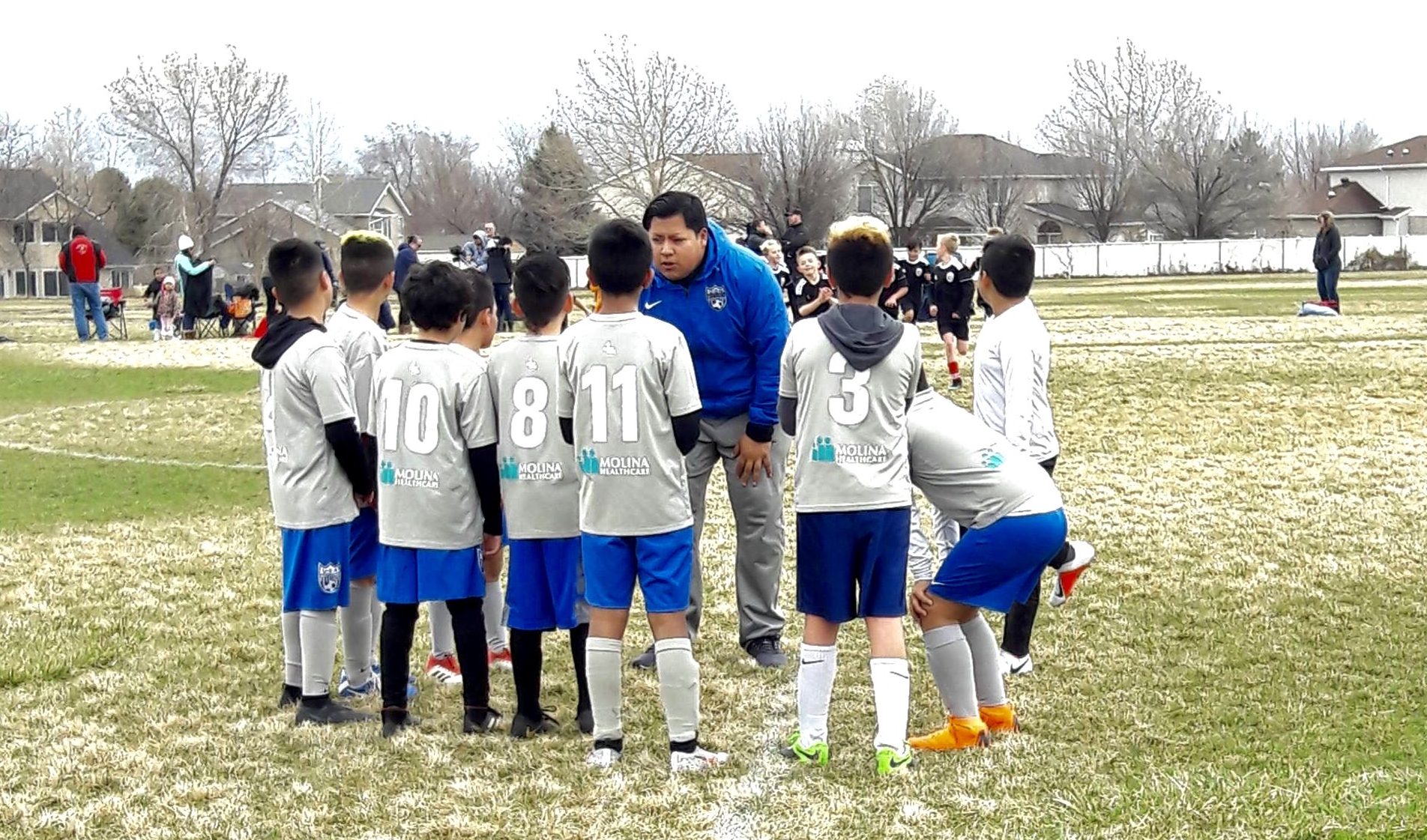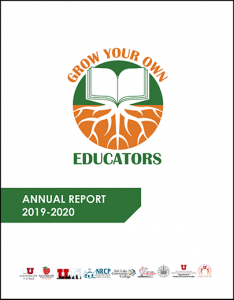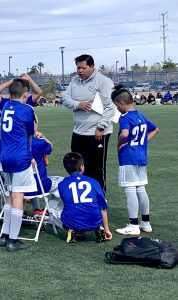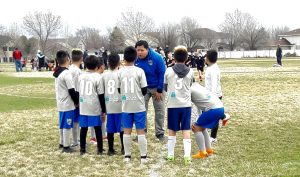
The Grow Your Own Educators partnership has just published its second annual reportDownload now, to read about how UNP partners are investing in local paraeducators and supporting them in earning their teaching license. The partnership aims to strengthen and diversify our teacher workforce, in order to improve educational opportunity in our Title 1 schools.

Carlos Palestina was born in Mexico City and migrated here to Utah when he was 8. Carlos attended Newman Elementary School, Escalante Elementary School, Northwest Middle School, and Highland High School. He attended the University of Utah right out of high school, planning to study business, but a car accident and other factors led him to leave postsecondary education.
20 years old and in need of a job, Carlos applied to be an afterschool group leader at Northwest Middle School. He got it, and over the next couple of years moved through a few jobs in the district. But it wasn’t until he started working at Rose Park Elementary, with the support of the CLC Coordinator and the Principal, that he found a passion for teaching. Learning about his background in sports, they asked him to be their first PE teacher.
 “I took the job not knowing what I had gotten myself into. It’s different from afterschool, having your own class and developing curriculum and figuring out what to do with kids. It was a fun, exciting, scary opportunity. I was the PE teacher for Rose Park for 6 or 7 years. Those first few days of teaching I was like, ‘I really like what I’m doing. I enjoy it. I have fun. This is something that I want to do.’ That’s where I was first turned on to being an educator and a teacher. It was fulfilling to see the smiles on the kids and for the kids to be excited to come into my class. I wanted to learn more about being a teacher, and what the requirements were.”
“I took the job not knowing what I had gotten myself into. It’s different from afterschool, having your own class and developing curriculum and figuring out what to do with kids. It was a fun, exciting, scary opportunity. I was the PE teacher for Rose Park for 6 or 7 years. Those first few days of teaching I was like, ‘I really like what I’m doing. I enjoy it. I have fun. This is something that I want to do.’ That’s where I was first turned on to being an educator and a teacher. It was fulfilling to see the smiles on the kids and for the kids to be excited to come into my class. I wanted to learn more about being a teacher, and what the requirements were.”
During this time, Carlos started studying again at Salt Lake Community College (SLCC), but, as he explains: “The path wasn’t really clear until I found Grow Your Own Educators (GYOE). How do you become a teacher? How do you get your license? When I found GYOE my path cleared up a little bit. I mean, there have been hardships all over. One was the monetary hardship I had paying off debts I had to the school. As you know, as a para we don’t have the best wages, so with that income you’re pretty much living day to day and I couldn’t see myself paying off the debt that I had from school to re-enroll again. That’s when GYOE really helped me, giving me opportunities to find money and scholarships to continue my education.”
[bs_well size=”lg”]Carlos is part of the Para-To-Teacher Cohort, a group of teachers aides, afterschool coordinators, and other paraeducators working toward a teaching license. In the past year, 14 cohort participants completed 54 college courses for a total of 162 credits and received over $23,000 in grants and scholarships.[/bs_well]
Carlos is once again enrolled at SLCC and making progress. Along the way he connected with a GYOE partner, the Rose Park Neighborhood Center, where he received a scholarship and has been doing some work. Carlos has also been a leader in the GYOE program, attending planning team meetings, joining in participatory research, and helping to guide the future of the partnership.
 He says of the paraeducator cohort: “It’s people who have stayed in the education system doing important work, not necessarily for the money but because we care for the schools that we work at and the neighborhoods where we live. I put myself in the shoes of the kids. I migrated to this country without knowing the language, without knowing the culture.”
He says of the paraeducator cohort: “It’s people who have stayed in the education system doing important work, not necessarily for the money but because we care for the schools that we work at and the neighborhoods where we live. I put myself in the shoes of the kids. I migrated to this country without knowing the language, without knowing the culture.”
“It’s about having compassion. You want to help them out, you want to close those cracks in the education system for them to be successful. That’s why I see GYOE being so powerful and so meaningful — because you’re actually taking people from our community to close the gaps and help students not fall through the cracks.”
“Eventually I want new members to walk same path as me. I want to develop educators that actually value the community, value the backgrounds of the kids. They can help kids who are new here understand the culture, the school system. They are also rich in their culture and language, so they can share that with the kids and have the kids say, ‘Oh, they’re like me. They’re a teacher. I can impact my community that way.’”
